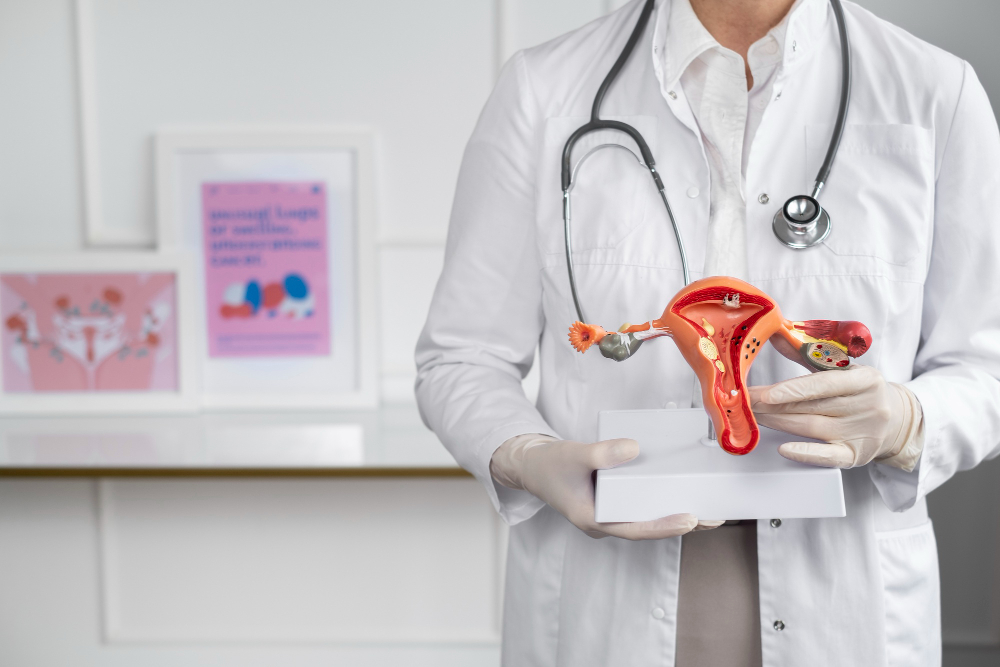Ovarian cyst removal surgery in Türkiye
Ovarian cyst removal is surgery to remove a cyst from one or both ovaries. Laparoscopic surgery uses small incisions and specialized tools. It may provide faster recovery times than open surgery, which uses a larger incision in the abdomen.
What are the reasons for the process of removing the ovarian cyst?
An ovarian cyst may need to be removed if it:
- Suspected to be precancerous – more likely to be greater in older women
- Large – over 2.5 inches in diameter
- Solid – rather than just liquid
- cause pain
Possible complications of ovarian cyst removal
Complications are rare, but no procedure is completely risk-free. If you are planning to have an ovarian cyst removed, your doctor will review the list of potential complications, which may include:
- infection
- bleeding
- The cyst returns after it is removed
- You need to have one or both of your ovaries removed
- infertility
- blood clots
- damage to other organs
Before having PCOS, talk to your doctor about ways to manage factors that may increase your risk of complications, such as:
- smoking
- drinking
- Chronic diseases such as diabetes or obesity
- Use of certain prescribed medications
The following may also increase the risk of complications:
- carry
- Previous abdominal surgery
Before the ovarian cyst removal surgery
Your doctor may:
- physical exam
- Medication review
- Blood tests
- urine test
- CT scan – a type of X-ray that uses a computer to make pictures of organs
- Ultrasound – a test that uses sound waves to examine the abdomen

Talk to your doctor about what action to take if cancer is discovered during surgery. One option is to remove the ovaries.
Before the operation to remove the polycystic ovaries:
- Talk to your doctor about your medications. You may be asked to stop taking certain medications one week before the procedure.
- Arrange a ride to and from the hospital. Also arrange for someone to help you around the house.
- Do not eat or drink for at least 8 hours before surgery.
anesthesia:
General anesthesia will be used. It will prevent pain and keep you asleep during the surgery. It will be given through an IV in your hand or arm.
How is the process of removing the ovarian cyst?
A small incision will be made below the navel. Next, a laparoscope will be inserted. This is a thin tube with a camera at the end. To allow the doctor to see the organs better, carbon dioxide gas will be pumped into the abdomen. A laparoscope will be used to locate the cyst. When it is found, one or two more incisions will be made. Surgical tools will be inserted to remove the cyst. Tissue may be removed for testing. If cancer is found, the ovaries may need to be removed. After the bag is removed, the tools will be removed. The incision area will be closed with stitches or staples.
In some cases, the doctor may turn to open surgery. During open surgery, a larger incision will be made in the abdomen to perform the surgery.
After the removal of the ovarian cyst
After the operation, you will be given fluids and medications while you recover.
How long will it take?
1-2 hours
Will it cause pain?
There will be pain after surgery. You will be given pain relievers.
Average hospital stay
You may stay overnight, or you may be able to leave the hospital the same day as your surgery.
Post-operative care
During your stay, the hospital staff will take steps to reduce your chance of infection such as:
- wash their hands
- Wear gloves or masks
- Keep your incisions covered
There are also steps you can take to reduce your chances of infection such as:
- Wash your hands often and remind visitors and healthcare providers to do the same
- Remind your healthcare providers to wear gloves or masks
- Do not allow others to touch your cracks
Recovery may take one to two weeks.
When to contact the doctor after the removal of the polycystic ovaries?
After leaving the hospital, call your doctor if any of the following occur:
- Signs of infection including fever and chills
- Redness, swelling, increased pain, excessive bleeding, or discharge from the incision site
- Pain that you cannot control with the medicines you have been given
- Increased vaginal bleeding or discharge
- Cough, shortness of breath, and chest pain
- Nausea and/or vomiting that you cannot control with medicines given to you after surgery, or that persists for more than 2 days after discharge from the hospital
- Headache, muscle aches, dizziness, or general ill feeling
- Constipation or swelling in the abdomen
- vomiting
- Difficulty urinating
- Pain or swelling in one or both legs
- New unexplained symptoms
How can I book an ovarian cyst removal operation in Türkiye?

- Free medical support on the phone: You will have a dedicated representative for your health condition who is always ready to answer your questions.
- Free consultation with a specialist doctor: Your medical representative will consult with a number of doctors and hospitals to find the best possible treatments.
- Free travel visa arrangement: We will contact the embassy in your country to assist you in obtaining a visa to visit Türkiye.
- Free itinerary planning: We will create a schedule for your medical trip to Türkiye.
- Free translation of documents and reports: We will translate medical documents and reports into Turkish on your behalf.
- Free support and monitoring: We will monitor the stages of treatment and be by your side every step of the way.
- Free instant translation: We will be with you during the treatment stages to provide translation between you and the medical team.
- Free accommodation and transportation coordination: We will book accommodation for you and your companions in Türkiye, along with transportation services.
Contact REHABTÜRK doctors for more information about the procedure and to evaluate your medical condition.

